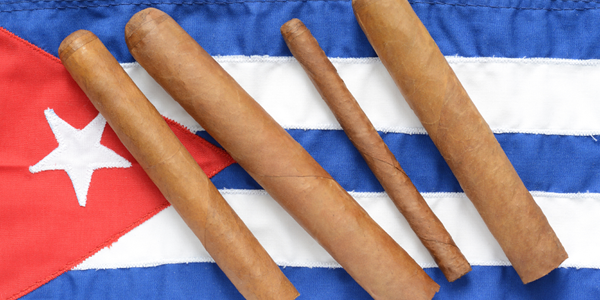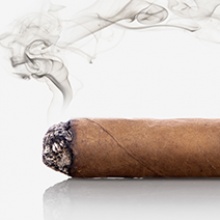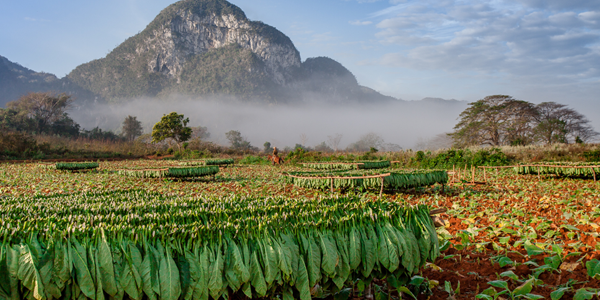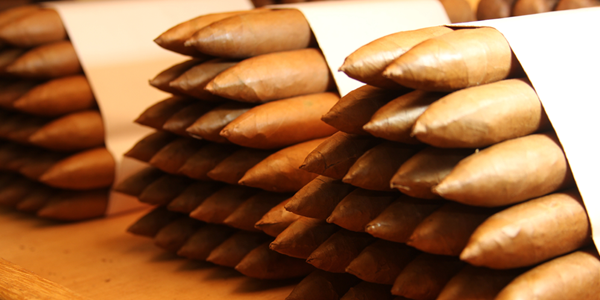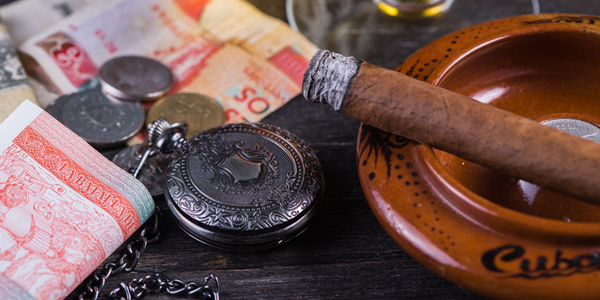What Is Cubatabaco?
The modern Cuban cigar industry began in 1542 when Spain set up the first cigar factory in Havana. It took more than 250 years for someone to defy government control and set up a private cigar brand in Cuba. That brand, Cabañas, is long gone, but it created space for others to register their own cigar brands. Cabañas, along with others, fell in 1962 after being nationalized by the revolutionary government of Fidel Castro. The Cuban cigar industry had come full circle.
The Birth of Cubatabaco
The Castro revolution took over Cuba in January of 1959 and cigar factories simply continued working as usual. They were making 140 brands for export, with a total of 1,185 vitolas. Of those, 999 were regular production cigars with 186 more being custom-made. All that changed in February of 1962 with the birth of Cubatabaco.
Cubatabaco, short for Empresa Cubana del Tabaco (Cuban Tobacco Company), was established by the Castro government as the state tobacco company. Its power seemed unlimited. Cubatabaco immediately took over control of all cigar factories. Most of the small ones were just shut down since getting people to work there was a big challenge. The larger, well-known factories like H. Upmann and Partagás, continued to work as they had, but under government control. The number of vitolas diminished significantly, with some brands, like Cabañas, simply disappearing.
A Division of Control
Cubatabaco ran all production and distribution of Cuban tobacco products on the island and around the world until 1994. That’s when the Cuban government added a subsidiary, Habanos, S.A., to handle international exports of Cuban cigars.
Habanos was owned by Cubatabaco until 2000 when it became a joint venture with Altadis, a French and Spanish company. The shares in Habanos were split in half after Altadis paid $477 million at a time when the Cuban economy was in collapse, in no small part due to the demise of the Soviet Union and its support. (In 2008, Imperial Cigars, a British company, purchased Altadis and its interest in Habanos. Imperial reportedly sold its cigar business to Allied Cigar, apparently a holding company registered in Hong Kong, in 2019 for more than $1.3 billion.)
Ch-Ch-Ch Changes
The influence of Altadis was quite evident in the restructuring by Habanos of its cigar lines and sizes offered. Additionally, the companies adopted marketing and production methods that were similar to those of cigar companies that sold their products in the United States. The thought was that this was all done in anticipation of the US market opening up to Cuban cigars one day soon. Altadis also influenced the increase of “special release” and “limited edition” lines of cigars. Most significantly, the capital Altadis provided is directly linked by experts to at least a partial restoration of quality in Cuban cigars. That quality had declined considerably in the 1990s as Cuba sought to increase production too quickly in response to the cigar “boom” and its quest for much-needed hard currency.
Today, Habanos is the world’s leader in the distribution of premium Cuban cigars, present in more than 150 countries. International marketing provides Habanos with 90 percent of its revenues. Part of the Cubatabaco/Habanos empire is well known to cigar aficionados who travel the world. La Casa del Habano is the retail franchise that sells the cigar products that Cuba makes. The way the system works is that Habanos seeks to prevent counterfeiting by exporting to a single company in each country. That makes it easier to monitor the business. Of course, that’s still not relevant to the United States, where Cuban cigars are prohibited from being sold.
Cuban Davidoffs Disappear
In awarding the franchises to single companies, Habanos also asked for 50 percent of the profits from the sales of the Cuban cigars. Most agreed, but Davidoff did not. The Cuban argument was that Cuban cigars had made Davidoff into one of the world’s most popular cigar brands. Davidoff responded by moving to the Dominican Republic (DR) in the early 1990s and stopped making Cuban cigars, explaining to the public that the inconsistency of Cuban cigars was the reason for the discontinuation. Davidoff bought its own brand name back from Cubatabaco for $9 million and began production in the DR. Cubatabaco, for its part, created the Cohiba 1492 Siglo line, making all five of Davidoff’s legacy “Chateau” vitolas.
Down on the Farm
Cubatabaco also took over management of many large tobacco-growing operations, but left many of the smaller ones to be run by the families that owned them. Of course, the way even the smaller farms were to be run had to follow guidelines for growing and prices determined by Cubatabaco. The government controls or owns everything.
"It's very simple," Hirochi Robaina told Cigar Aficionado. Hirochi, the grandson of late Cuban cigar master Alejandro Robaina, has been managing the family-owned property on his own. "We have one client, and we have one place to buy everything. At least prices are up three to ten times in the last few years for good tobacco." (If you visit Cuba, and want to see a tobacco farm, the Robaina operation is the one to see in Pinar del Rio. Many historic planting, growing, harvesting, and production methods are preserved there.

